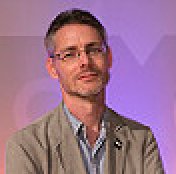Radio Tomorrow with James Cridland
There’s a point during some of my presentations where I show how people are listening to the radio. “So, “ I normally say, looking at figures for the UK or Australia… “most listening to the radio is to AM/FM, right? What the next most listened-to? Radio through the TV… radio through a DAB+ radio … or the internet?”
I get people to put their hands up for each. It’s relatively reproducible… one eager person puts their hand up for “radio through the TV”, everybody else looks at them, I congratulate them for being obviously wrong but thank you for trying. Then, a smattering of hands go up for DAB. Overwhelmingly, though, the hands go up for the internet.
And, while 70% of people have their hands up for the internet, I reveal the actual numbers, to show that the internet is much smaller than they think it is: around four times less than listening on DAB.
We – those that work in radio – are not normal. We consume media in very different ways to our audience. It does us good to be reminded of this occasionally.
The data is clearer in this piece which compares podcast consumption between people who just listen to podcasts, and people who make them as well.
People who make podcasts, says the piece, listen to fewer podcasts than ordinary listeners. They subscribe to fewer and listen less. They are also more likely to listen on an iPhone, and less likely to use Android.
And, of course, we all know about radio presenters, who are sick of a new song before the audience can even hum it.
It turns out that our gut is a very good programming tool; but so is learning what the audience are doing and how they are consuming our product. That data contains good news, and news about where we should be investing our time.
I’m at a conference this week (in Nice, France) which is all about broadcast research. I’m sharing some parts of international radio trends that might change the way we measure radio; and recommending that they should consider three things.
First – to get more programmers to the conference. It’s a fascinating conference (believe me, I’ve travelled halfway across the world to get here), and well worth your time.
Second – to talk to the industry more. There’s a lot of ignorance about research, how it works, how accurate it really is. Instead of waiting to be asked, I’m suggesting the industry goes and talks to people who make radio, not just the executive teams.
And thirdly – to do a better job of their internet websites (or to build that into new contracts). It’s no surprise that I quote a lot from the UK and Australian public figures – because they’re done well, and available in a variety of different formats on a clear publicly-facing website. The same isn’t the case for many other countries. Radio has a good story, and it deserves to be told well.
When you next see them, ask your research people to tell you something you didn’t know. You might be surprised by the response.
About The Author
James Cridland, the radio futurologist, is a conference speaker, writer and consultant. He runs the media information website media.info and helps organise the yearly Next Radio conference. He also publishes podnews.net, a daily briefing on podcasting and on-demand, and writes a weekly international radio trends newsletter, at james.crid.land.

